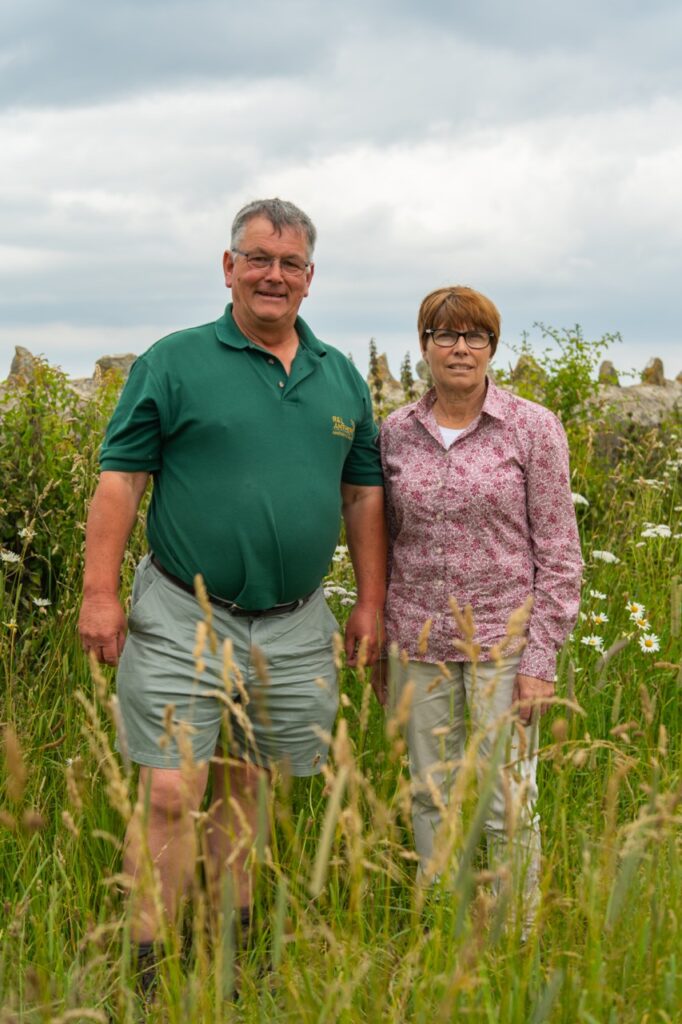In just 16 years, Richard and Lyn Anthony went from managing a small flock of sheep on 110 acres of rented land to a mix of contract farming and long-term Farm Business Tenancies running 3,000 acres of arable and grass with a flock of 800 ewes. A pioneer of sustainable intensification, in 2013, Richard was elected a fellow of the Royal Agricultural Society of Wales in recognition of his work on soil management, which increased his yields by 25-30% and the earthworm population tenfold.
He continues to develop regenerative systems, favouring natural solutions over chemical inputs, resulting in a farm rich in wildlife including rare yellow wagtails and turtle doves. Lyn said: “It is amazing to see how the numbers and variety of different bird species, hares and other wildlife have increased over the past few years.”
Soil structure and fertility have been improved through minimum tillage, cover crops and companion planting of spring beans and berseem clover to fix nitrogen and insecticides haven’t been used for three years.
Richard said: “If you look at the way we were growing oilseed rape five years ago, it’s mind blowing. This year’s OSR crop look as good as we have ever grown previously, but we’re growing it in a totally different way. Companion crops like buck wheat, vetches and spring beans, seem to have reduced the flea beetle problem and grass margins with strips of wildflower mixes have restored beneficial insect predators. Recently we’ve allowed our hedgerows to grow wider and taller, which is making a huge difference in combination with the field margins.”

The farm’s pheasant shoot also benefits songbirds by funding winter feeding, predation management and game crop mixes including sunflowers, spring beans, keeper kale, buckwheat, millet and phacelia. All the other environmental measures are paid for by the business because Richard found the old Glastir agri-environment options too restrictive. In his view, it is vital that schemes are flexible and fit in with the farming operations. He said: “The project officers assigned to us threw out half of what we wanted to put in. We were going to be disadvantaged and worse off financially, so we decided not to go into the scheme and instead do what we felt was the right thing.”
Richard and Lyn have invited politicians and policy makers to see their integrated conservation work first hand in the hope that future schemes will be more farming friendly and financially viable. Richard said: “We’re trialling things on the ground to show what works and what doesn’t. I’d love to do what we’ve achieved at Sealands over the whole farm, but if Welsh Government want to roll this out across the country, they will have to pay for it.”
Looking ahead, Richard and Lyn would like to collaborate with other farmers, linking up woodland and other habitat. Richard said: “I think a lot of our neighbours would be interested, so hopefully any future scheme would have funding for Farmer Cluster facilitation.”
